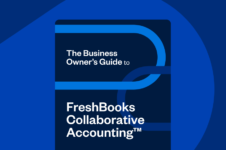Communication, record-keeping, and technology are common frustrations your clients are likely facing — so let’s fix em’ now!

All relationships require hard work, including the ones you share with your clients. Establishing trust, respect, and credibility can be tricky when industry-specific challenges stand in the way.
Is it helpful to know that you’re not alone? Here are 8 pain points you might be experiencing with your clients, and how you can fix them.
Table of Contents
1. Lack of Clear and Timely Communication
Do you suffer from the “Santa Claus Syndrome”? This is when your clients only want to talk about their business finances once a year. Just like Santa, you’re burdened with a tremendous amount of heavy lifting all at once. The difference between you and the big guy is that you’re more likely to deliver hard truths than sparkly presents.
Wouldn’t it be better if your accounting firm had a clearer view of how your clients’ businesses are performing in real-time rather than being called in a panic when there’s a problem or it’s tax time?
How to fix it:
Transition to offering accounting advisory services that deepen client relationships. Instead of merely managing compliance and regulatory tasks at prescribed times, you provide proactive and predictive insights about a client’s business.
This type of service requires regular check-ins (bi-weekly, monthly, quarterly) with your clients so that you have a better view of the challenges and opportunities as they progress. When you consistently communicate with your clients, you’re both more likely to be on the same page, minimizing the frantic end-of-year flurry.
2. Clients Don’t Understand Financial Terms and Concepts
The accounting profession has its own language. While you may be trained in the intricacies of general ledger, charts of accounts, and accounts aging reports, you can probably appreciate that terms like these can make your clients’ heads spin.
It’s not reasonable to expect business owners to learn the financial concepts that were part of an entire education for you, but it would be helpful if they could be a little more fluent in accounting-ese.
How to fix it:
When your clients use FreshBooks, they have built-in resources (FAQs , articles, and an accounting glossary) that explain some of the financial terms and concepts they encounter in consultations with you.
FreshBooks also provides plenty of small business information and inspiration that can complement the advisory services you offer them. They can come to every meeting with you better prepared to understand the financial concepts that are part of well-managed accounting records.
3. Clients Are Uncertain of Their Financial Position and Important Deadlines
A common frustration for business owners is uncertainty about their business finances between meetings with their accountants. They also may be unsure when to submit important documents for tax time.
We know, we know. Despite the concerns they share with you annually, it can be hard to get clients attention while they’re running their business. You may email them or remind them of deadlines, but if it’s a long way off, it’s easy for them to lose sight of them.
How to fix it:
FreshBooks offers a Collaborative AccountingTM workflow in which clients are active participants in their day-to-day finances. You can collaborate directly in FreshBooks, where you both have a transparent, real-time view of their financial operations. This ensures they’re more aware of what’s required of them, and when. And if they’re not sure? You can schedule a quick meeting to hop on the platform and discuss what you’re both seeing.
4. Clients Fail to Provide Necessary Documents on Time
It’s frustrating when you have to plead with your clients to provide financial statements, tax reports, and payroll records to keep them compliant and file their taxes before the deadline. Sending reminders and following up can be as exasperating as it is time-consuming, sucking the satisfaction out of your workday.
How to fix it:
The Collaborative Accounting workflow helps remove this frustration by giving you instant access to everything you need—whenever you want to see it. Of course, your clients will need to do their part by keeping their records up to date, but that’s where positioning yourself as an accounting advisor can make a big difference. Regular communication is part of the advisory experience, making it less likely that accounting obligations fall off their radar.
5. Incomplete or Inaccurate Information From Clients
Chances are you have confronted the proverbial (and literal) shoeboxes full of expense receipts—or worse, no receipts at all. The “herding cats” aspect of the job is particularly aggravating for accountants who are meticulous about record-keeping and who thrive on organization.
How to fix it:
When you use Collaborative Accounting, your clients are responsible for doing their own pre-accounting tasks, such as managing projects, entering expenses, and sending invoices. With more hands-on experience and regular advisory discussions with you, they are better able to recognize the importance of keeping their records up to date. And if they don’t? You can send them more timely, relevant, and personalized reminders.
6. Clients Struggle With Technology
Working with technology-averse clients can be tedious for an accountant, especially when navigating countless paper records and out-of-date spreadsheets. The trick is to help business owners understand how freeing technology can be. Now, if only you could find the right software solution for them.
How to fix it:
Enter FreshBooks, an intuitive accounting software that’s perfect for business owners who are inexperienced with or wary of technology. In fact, 95% of small business users say it’s easy to use.
The number one thing that’s the draw is the look of [FreshBooks]; the platform is not intimidating, and it’s very user-friendly. Everything they need is laid out for them on the left side in language that business owners use. Features like Invoices, Estimates, Expenses, and Projects are at the top for them, and the accounting reports are further down. Using those tools on the left side helps them follow the path.
7. Client Data Migration Headaches
Sometimes, the right thing to do for a client is to help them get a fresh start with a new accounting software solution that is ideal for their type of business. However, moving their financial data from one software system to another can be a supreme hassle. Don’t let this hurdle hold you back from simplifying your client’s finances.
How to fix it:
FreshBooks’ custom data migration service helps you move any amount of data from any other platform.
You and your client can choose to have specialists do it for you, or you can get dedicated support if you decide to do it yourself.
8. Clients Are Using the Wrong Tools for Their Business
You’ve likely encountered the over-eager client who chose an accounting solution with all the bells and whistles—most of which their business doesn’t need. While this doesn’t seem like a problem at first, they can quickly get bogged down by features they don’t use and complicated processes that are completely unnecessary. This can lead to them avoiding it altogether and falling behind on keeping their financial records up to date.
How to fix it:
When it comes to accounting software for business owners, here’s the secret: Keep it simple.
That’s why FreshBooks is ideal for service-based businesses. It’s a simple-to-use, affordable subscription service that has everything owners need without confusing them. Plus, it is the only software that offers Collaborative Accounting, where clients and accountants work together.
Understanding and addressing common pain points can significantly improve both your professional satisfaction and your clients’ experience. By focusing on proactive communication, clear explanations, and leveraging intuitive technology, you can transform common frustrations into opportunities for growth and stronger client relationships.

Written by Heather Hudson, Freelance Contributor
Posted on August 12, 2024
 Accountants: What Is the Best FreshBooks Plan for Your Client?
Accountants: What Is the Best FreshBooks Plan for Your Client? 5 Ways to Work Better With Your Clients in FreshBooks, for Accountants
5 Ways to Work Better With Your Clients in FreshBooks, for Accountants Looking to Move Your Client’s Books? Here’s Why FreshBooks Is Right for Them
Looking to Move Your Client’s Books? Here’s Why FreshBooks Is Right for Them





